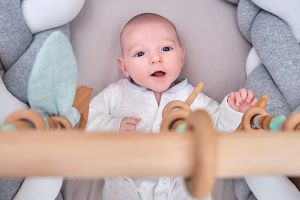December 15, 2021
by Elizabeth Pratt

Smartphone and computer-based treatments are effective at reducing symptoms of depression.
Research published in the Psychological Bulletin found that digital interventions could be effectively used as a treatment for depression for a variety of groups with different levels of depression.
[More]
December 14, 2021
by Patricia Tomasi

A new study published in the Society for Research in Child Development looked at Perceptual Access Reasoning (PAR) in developing a representational theory of mind. “My colleagues and I studied how young children develop a theory of mind, which refers to our common sense understanding that people’s outward behavior is caused by their internal mental states, such as their desires, perceptions, knowledge, memories, and beliefs,” study author William V. Fabricius told us. “Young children have to learn what the different kinds of mental states are, and how they work together to produce people’s behavior. It is so very important for children to understand these connections, because it lays the foundation upon which they learn how to get along with others.”
[More]
December 8, 2021
by Patricia Tomasi

A new study published in Nursing Administration Quarterly looked at associations among nurses' mental and physical Health, lifestyle behaviors, shift length, and workplace wellness support during the COVID-19 pandemic. “Based on previous findings from similar studies, we theorized that the COVID-19 pandemic would have a negative impact on the well-being of nurses,” study author Bernadette Mazurek told us. “Moreover, we believed that nurses who worked shorter shift lengths ( 12 hours) and perceived their workplace as not supportive of their wellness.”
[More]
November 30, 2021
by Patricia Tomasi

A new study published in the Journal of Science looked at active learning. “The notion of active learning has been receiving a lot of attention recently,” study author Nesra Yannier told us. "Especially with COVID-19, the importance of engaging students with novel ways of learning has become even more apparent. While schools and teachers are trying to adapt by incorporating new techniques and technologies, quarantine has also been having psychological effects on students such as social isolation, restlessness and attention problems.”
[More]
November 30, 2021
by Elizabeth Pratt

Providing social support to others could be good for your health.
A study published in Brain, Behavior and Immunity by researchers at Ohio State University found that those who have positive social relationships in which they are available to provide support to others had lower levels of inflammation.
[More]
November 28, 2021
by Elizabeth Pratt

The reason why siblings with the same upbringing and genetics can exhibit such different behavior has long puzzled psychologists, neuroscientists and researchers alike.
Now, a team of researchers from the universities of Bath and Southampton in the UK may have an answer as to why some siblings from the same family may develop antisocial behavior when others do not.
[More]
November 23, 2021
by Patricia Tomasi

Depression is the leading cause of disability worldwide and it is well known that there are strong links between parental and child depression. Understanding this relationship is key to trying to prevent intergenerational transmission. Worldwide, one in five women suffers from postpartum depression. A new study published in BJPsych looked at maternal and paternal depression and child mental health trajectories. “Our study is about tracking mood over time in children of parents who were depressed in pregnancy and/or after birth,” study author, Professor Rebecca Pearson of Manchester Metropolitan University/University of Bristol told us.
[More]
November 19, 2021
by Tina Arnoldi

A recent study found a link between depression and social anxiety on increased phubbing. It also showed that smartphone usage during face-to-face interactions can be problematic and harmful in friendships. “Results showed that those with higher levels of depression, social anxiety, and neuroticism were significantly related to greater friend phubbing while agreeableness was negatively related to friend phubbing.”
[More]
November 16, 2021
by Patricia Tomasi

A new study published in the Journal of Personality and Social Psychology looked at miscalibrated expectations and how they create a barrier to deeper conversation. “In this research, we wanted to understand why people often engage in small talk in everyday life rather than initiate deeper and more intimate conversations that might strengthen their social relationships,” study author Michael Kardas told us. “We reasoned that people's decisions about what topics to discuss in conversation are guided by their expectations about the likely outcomes of the conversation.”
[More]
November 9, 2021
by Patricia Tomasi

A new study published in the Journal of Child Development looked at infant exuberant object play at home. “Researchers have long considered play to be a primary context of infant learning,” study author Catherine Tamis-LeMonda told us. “However, studies of play are confined to laboratory tasks. Our study is about how infants interact with objects spontaneously at home. We wanted to know how much infants interacted with objects outside from the laboratory confines, with the objects that they typically have access to in their everyday environments."
[More]